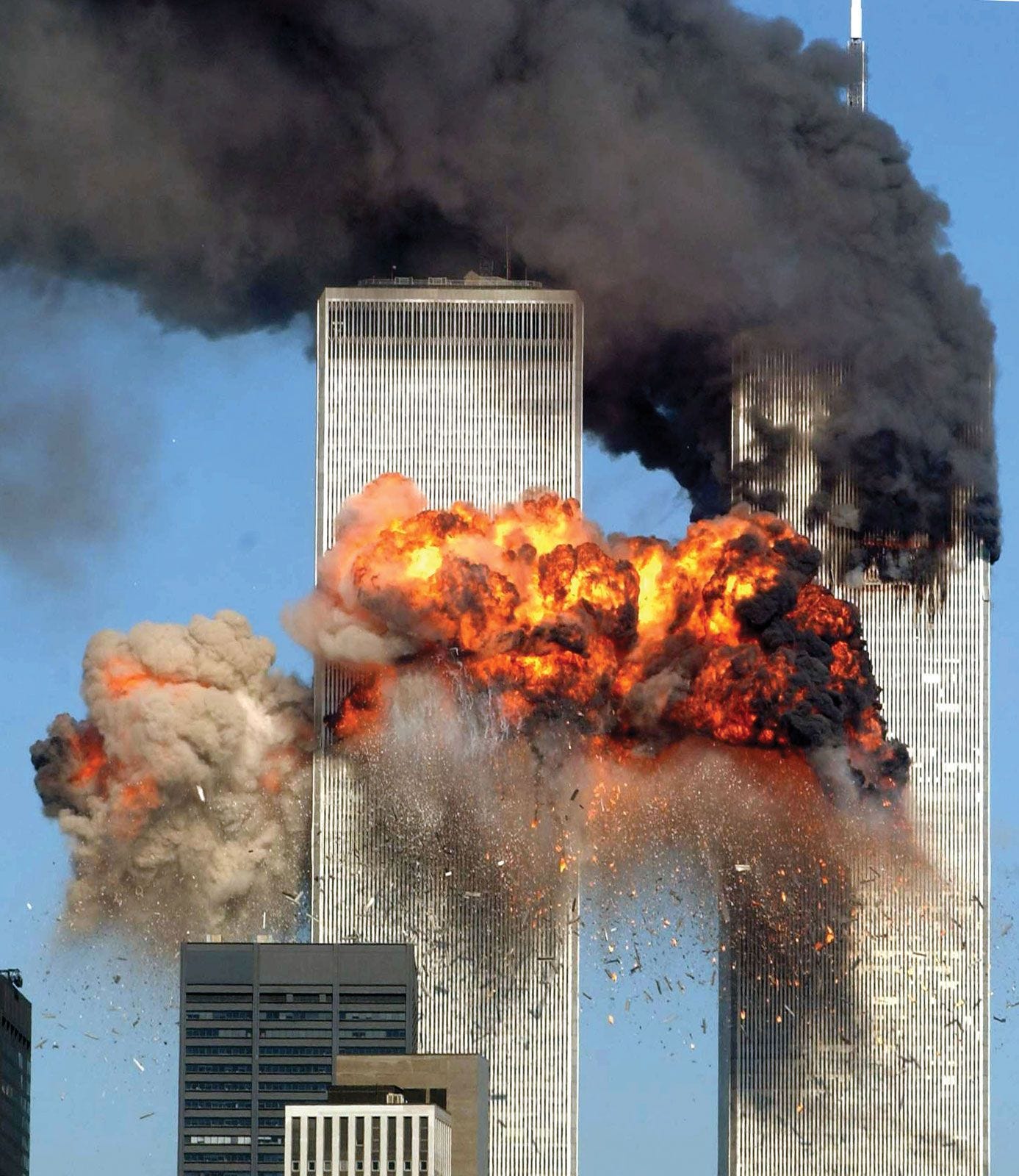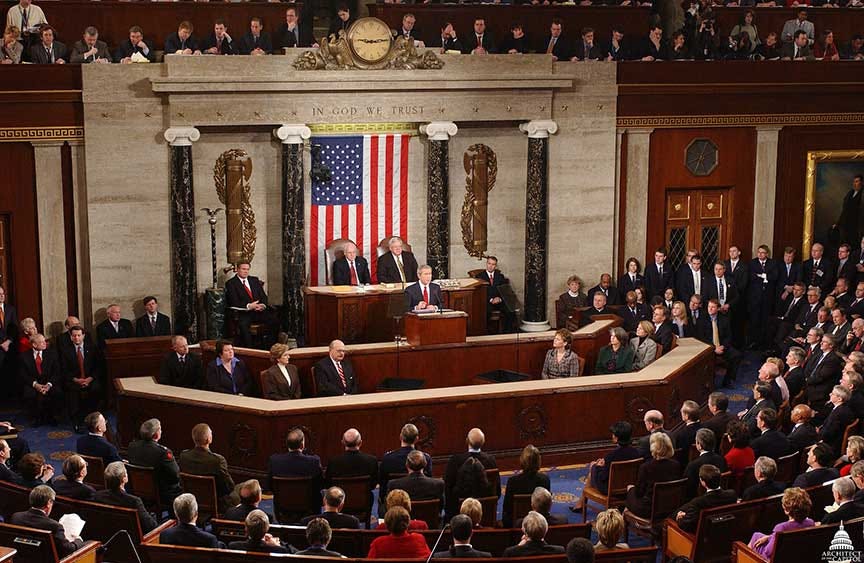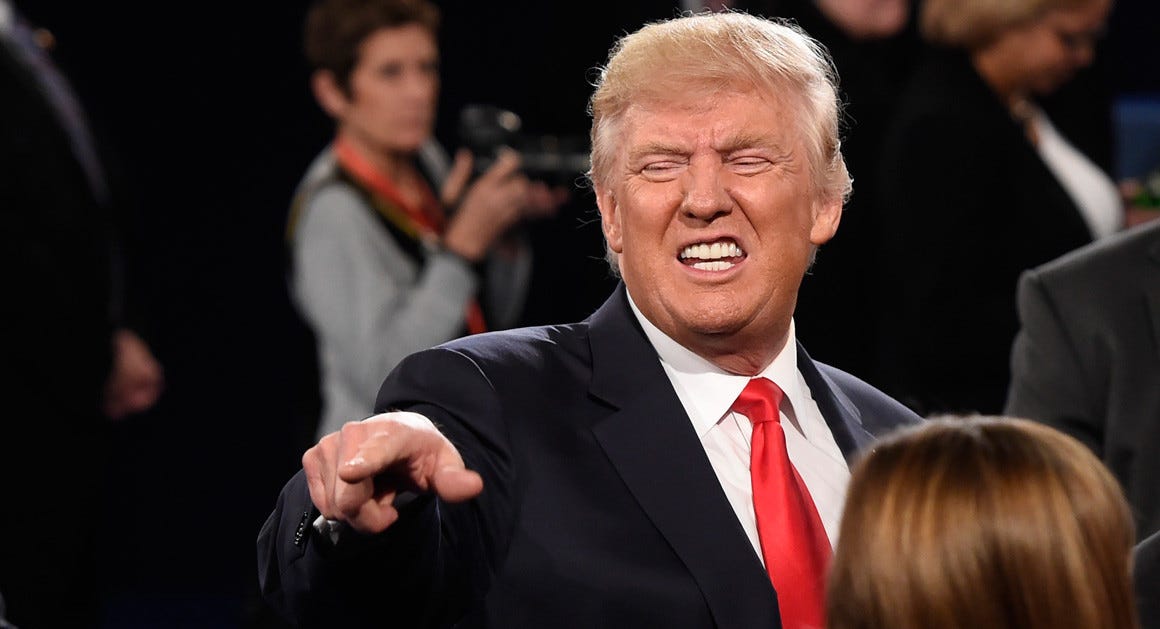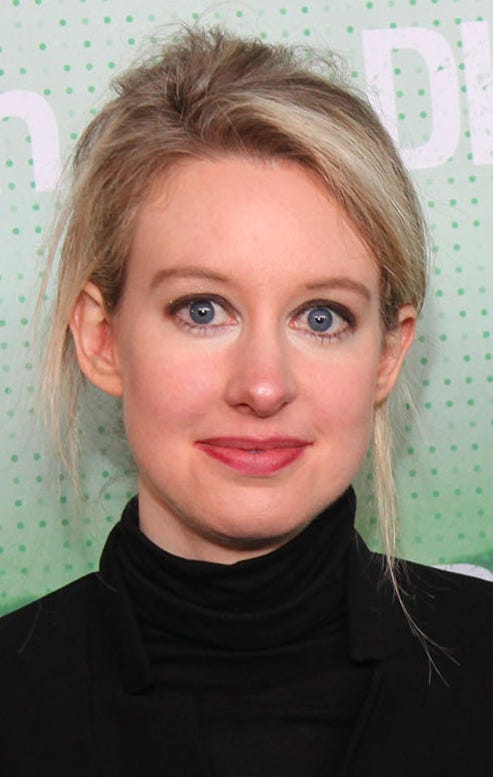If You're Feeling Blue This Holiday Season, Maybe There's A Reason
Things have been happening, and they're not all good.
“The world breaks everyone, and afterward, many are stronger at the broken places.” ~ Ernest Hemingway, A Farewell to Arms
Cause and effect. More than a curious phenomenon, it is actually one of the governing principles of the universe. Cause is at least partly responsible for effect, and effect is at least partly dependent upon cause.
In a microcosmic sense, stuffing our faces full of sugary holiday treats has unintended consequences. This cause (gorging until we slip into a coma) usually has the effect of unwanted weight gain. But not for everybody and not all the time, which if you think about it is kind of chilling because it upends one of the most sacred, ironclad universal laws, which is cause and effect.
We all know people for whom the laws of nature and the universe don’t seem to apply. They’re lead-foot drivers; we’re the ones with the speeding tickets. They eat everything in sight; we’re the ones who wake up five pounds heavier. With no depth of field on their resumes, they effortlessly land high-paying jobs; we’re struggling to find shit jobs for half the pay and twice the work.
After a while, even the least begrudging amongst us starts to question what the hell is going on. Why do the least deserving, least talented, and least appreciative have so much? It’s not even covetousness we feel, but genuine bewilderment. Why do we suffer the consequences of everything we do or don’t do—cause and effect—while other people seem to get away with it every. single. time?
Trump, for instance. That guy makes Teflon look like tissue paper. When is he ever going to get his comeuppance?
If you said “never”, you’re not likely wrong.
So, when we see people circumvent the immutable law of cause and effect, and we see it over and over again, what repercussion does that have on the rest of us? Remember that the fallout is cumulative. In fact, I would go so far as to say that middle-age disillusionment is a direct result of years and years of seeing people (public figures especially) never suffer the consequences of their actions. It’s death by a thousand cuts. Our friend who treats his lovely wife like a second-class citizen, who flagrantly cheats on her and lies about it, doesn’t get caught, is promoted at work, and enjoys a nice Christmas bonus.
How is this fair?
Such matters upset our innate craving for fairness and our need to make sense of a world that feels increasingly chaotic. It’s the cyclone that pulverizes one house on a residential block and leaves the others untouched. It’s the friend who doesn’t smoke, doesn’t drink, eats healthy and exercises who dies of lung cancer. It’s the boss who steals your ideas at work but still gets promoted to C-suite.
It eats at you, these rude reminders that justice and fairness are a man-made construct. Eats at you and wears you down, wears you out, wears you ragged.
One of the more obvious reasons we love stories, whether in movie, book, or spoken form, is because nine times out of ten, the villain of the piece is triumphantly smote. It thrills us to see natural order restored. Even for those of us who glumly survey the wreckage of hubris and greed as a text for human folly are never unmoved by such fictional demonstrations of moral propriety. To most of us, a “happy ending” isn’t the goings-on at a skeevy massage parlor, but justice needed and justice done.
In real life, of course, it rarely is. And no matter how examined a life we lead, we suffer for it personally, and I believe nationally as well.
What feeling did 9/11 leave us with? Our invulnerability was shattered. Unlike every country in Europe, the U.S. has never been invaded by a hostile force (Pearl Harbor being a notable exception).
One might argue that a handful of Saudi terrorists hardly an invasion made, but it sure didn’t feel that way. We weren’t safe anymore. The horrific loss of life in the Twin Towers left a psychic scar that we still feel, whether we are aware of it or not. It’s there, always below the surface of our collective consciousness, ready to flare up like a bad case of eczema.
In 2001 came George W. Bush’s $1.5 trillion tax cut. This bothered some of us who realized, as others did not, that this tax cut benefitted top earners the most and would eventually leave gaping fiscal holes in public school and infrastructure budgets. Ten years later, of course, we now have a $1.5 trillion dollar deficit. Here then was another injustice done, one that made us feel helpless and enraged. It underscored the idea that our lawmakers were nothing but a bunch of grifters in suits, ready to do the bidding of their wealthiest donors while simultaneously disregarding we, the people, who elected them to office.
In 2004 came the Abu Ghraib prison abuse scandal that shocked those of us with actual human hearts and caused an international uproar. We tortured, raped, mutilated, and killed men, women, and children in front of witnesses, some of whom were also women, which then controverted some of our most cherished beliefs about women being the “gentler sex.” Then-president Obama initially agreed to release the photos, ghastly as they were, but was persuaded not to by U.S. military intelligence.
Most Americans were stunned and shaken by news reports of what we’d done in the dark. We were no better than Nazis. Now, more than ever before, our collective feeling was one of shame and self-loathing.
In 2012, we found ourselves reeling from the Sandy Hook school shooting and a year later, the Boston Marathon bombing. Our darkest fears about terrorism were being realized, except the terrorists were us. Lawmakers did nothing. Even in places where gun laws existed, loopholes the size of Wyoming offered us little protection against the madmen in our midst. Now, we not only felt less safe from the terrorists, but unsupported by our government. It was a sobering wakeup call for a country that prided itself on being a beacon of freedom and democracy.
Then Donald Trump was elected.
In his brief but notorious tenure as emperor president, Trump:
Fired FBI Director James Comey
Left the Iran Nuclear Accord
Engaged in a contentious G7 meeting with other world leaders
Held a U.S./North Korea summit
Had off-the-books meetings in Helsinki with Russian president Vladimir V. Putin
Jailed his own fixer, Michael Cohen, on made-up charges after Cohen went public
Bungled one of the biggest refugee crises in U.S. history
Separated thousands of immigrant children from their families
Paved the way for Brett Kavanaugh to be confirmed to the Supreme Court
Engineered a thirty-five-day shutdown of government
Strong-armed his Attorney General Bill Barr into heavily redacting the Mueller Report
Failed to properly respond to the COVID-19 epidemic
Spread conspiracy theory cures and disinformation about same
Incited an insurrection on January 6, 2021, resulting in over ten deaths and 600 injuries
Managed to squeak through a second impeachment trial
Absconded with highly classified documents
Continues to evade justice, one smoke screen and one lawsuit at a time
And those were just the highlights.
So what emotional effect has Trump had on Americans?
Trump traumatized us. I think he’d be delighted to hear that. Some of us recognized the conman tactics right away, and at long last, the rest of the country is finally waking up to the truth. But we are angry, disappointed, horrified, and helpless. If, as Samuel Johnson said, “patriotism is the last refuge of the scoundrel,” we have a lot of angry patriots.
Everyone, across the board, is deeply frightened. The world is changing at lightning speed, American pitted against American, online and off. If we listen to Fox News, we fear Mexicans with prayer rugs pouring over the border. If we listen to MSNBC, we fear the end of democracy itself. Everyone is convinced that America has lost its mind, we’ve become a nation of delusional fantastists who think we can just arbitrarily switch genders by demanding that other people use our pronouns, and that cancel culture is either deeply problematic or an essential part of the national discussion. Mostly, we need money—way more than we’re making—and it seems as though the tables are rigged there, too. We work hard and pay our taxes (cause). Where then is our effect?
As a result, we’ve become nihilists who believe in nothing but making money by whatever means possible. Thirty-year-old billionaire Sam Bankman-Fried, for instance, turned out to be another Ponzi scheme swindler, just like Onecoin ($25 billion grift), Bitconnect ($4 billion), Bitclub Network ($722 million), Quadriga ($250 million and the guy possibly faked his own death), Thodex ($2.2 billion and the guy disappeared) … I could go on.
Watching the shameless boondoggle of cryptocurrency feeds into our collective cynicism and despair. What’s real anymore? What matters? If working hard doesn’t make us rich (cause but no effect), marriage is no longer sacred (and people are no longer getting married); if we have to cheat to get into a decent college (Lori Loughlin bribing her daughters’ way into USC) and putting ourselves into crippling student loan debt just to stay there, where are the jobs that pay enough to cover our expenses?
Americans are at their breaking point, and where America goes, in many ways, so goes the world. Are we really that surprised at the Elizabeth Holmeses, the careless disregard of the entire class of boy-kings (Musk, Zuckerberg, Dorsey), the outrageous charlatans (Trump, McConnell, Taylor-Greene), and the behind-the-scenes Sith lords (Koch Brothers, Peter Thiel, most members of the Supreme Court)?
We aren’t even pretending to play by the house rules anymore. It’s the American wild west all over again, only with fewer ponies.
So, yes, you have every reason to feel a little dispirited this holiday season. You have cause-and-effect disorder. And to make matters even more confusing, there may be one cause (e.g., poverty), but many effects (humility, defiance, criminal behavior, a deepening of faith). We all respond differently to the pressure.
But taken on the aggregate, there’s a whole bunch of cause out there and very little effect these days, and that’s the problem. It’s making us cynical and angry. We no longer believer in anything.
I predict we’ll either go full-on savage or we’ll find a way to rein ourselves in. One or the other, but not both.
But after we’ve seen ourselves in the mirror with no makeup, no hot rollers, and a five-piece luggage set beneath each eye …
When we really see what we’ve become …
Is there any coming back from that?
Copyright © 2022 Stacey Eskelin
What’s your take? I love, love, love to hear from you, so put some reason in my season and chime in below.







"Everyone is convinced that America has lost its mind[.]" Every generation is convinced that America's going to Hell in a hand basket...and they're not necessarily wrong. It's a matter of perspective.
We see chaos, greed, and corruption, and we think America is becoming unmoored, but so much of that is human nature- lack of a moral center, lack of self-awareness, lack of a sense of community. In a way, it's not thematically different than Russia in the '90s (and yes, I just finished watching all seven "Trauma Zone" episodes. Ugh.), though stylistically it sure as Hell is.
Humanity overreacts. It's what we do. Things are seldom ever as bad or as good as we believe them to be. Will times like these change us? Sure. Will they ruin us? Possibly, but more likely we'll manage to bounce back in some shape, manner, or form.
Or we'll all go to Hell together when we go. Drinks are on me!
"justice and fairness are a man-made construct" -- This is something I would disagree with. Our approximations to justice are human made, but the ideal of justice is at least objective enough to apply to anything with something like our chemistry and something like our psycho-cognitive make up. Introduce me to plasma-entities in the Crab nebula, and we can have a conversation about the metaphysics of morality beyond that which is graspable -- or even presently imaginable -- by the human psyche (of feeling and intellect.) Until then, I will work with what is in front of me.
By the way, the attack on Pearl Harbor was only technically an attack on "American" soil -- Hawai'i was only a territory at the time.
Many years before 9-11, when I was still living in Chicago, I commented to a friend at the time that my greatest fear about a terrorist attack was not the death it might cause but the savagery it would inspire.
"Inspire" -- inspiritus (Latin) -- pneuma (Greek) -- breath. To breath into. To give life.
"I am become Death, the destroyer of worlds." (Hindu, Upanishads, I believe.)
"Is there any coming back from that?"
The US Army required every German citizen in the vicinity to take a walking tour of the Death Camps they'd pretended weren't there. While there are individual exceptions, on the whole the Germans did come back from that. I don't care how pissed off anyone might be, we've still not gone that far.
So yeah. It is possible to come back from that.
Better by far never to go there in the first place.